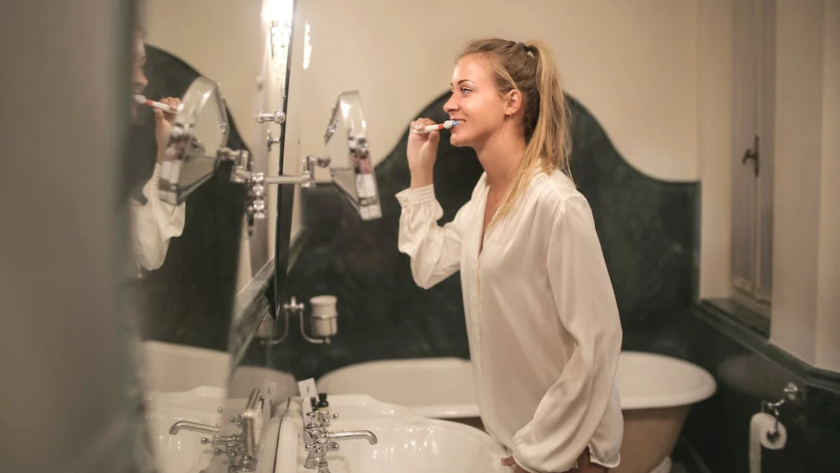When a dentist tells you to brush your teeth two times a day, you assume that there’s nothing else to it. That seems like pretty simple advice, right? For most of us, it means we brush in the morning and then at night. Believe it or not, there is a wrong time to brush your teeth. In fact, if you brush your teeth at this time, it could actually create more problems rather than improve your oral health.
When shouldn’t you brush your teeth?
It is not a good idea to brush your teeth immediately after eating.
Why?
When you eat, your tooth enamel gets attacked by sugar and acids. This won’t necessarily lead to long-term damage, but it can weaken the enamel. So, when you start brushing your teeth, you’re making contact with weaker enamel. Therefore, you raise the likelihood of further damaging your teeth and causing bigger problems.
Moreover, as soon as you finish eating, all the residue from the food remains in your mouth and on your teeth. If you brush right away, all you’re doing is moving the sugars and acids around, spreading the problem throughout your mouth.
Put simply, brushing immediately after eating could increase your chances of damaging the enamel and boost the possibility of getting cavities.
It’s also unwise to brush your teeth when you know you are going to eat soon.
For example, you wake up, brush your teeth, and then instantly eat breakfast. This is a bad idea as you’re basically just undoing the hard work before the fluoride in your toothpaste has a chance to settle in and protect your teeth from cavities. Plus, brushing weakens the enamel, as does eating, so you have a similar issue as above.
What’s the right way to brush your teeth?
The best time to brush is after you have eaten, provided you leave 15-30 minutes. This gives your teeth enough time to recover after eating, also allowing your saliva to remove some of the acids from your teeth and neutralize the ph levels.
So, in the morning, try to eat breakfast, wait for half an hour, and then brush your teeth. The same goes for brushing in the evening – ensure you haven’t eaten for at least 30 minutes before you brush and go to bed. Also, try to brush your teeth as close to your bedtime as possible, giving your teeth maximum protection.
During the day, instead of brushing after eating, you can do other things to keep your teeth healthy. Using topical products like Tooth Mousse provides additional protection while chewing gum after meals can remove sugars and food particles from your teeth. Mouthwash also helps and is particularly good when used 15 minutes or so after eating.
So, what have we learned? Brushing your teeth two times a day isn’t the only rule you should follow. You need to know when to brush your teeth, and when not to. Follow the advice above to take better care of your teeth and you will soon be your dentist’s favorite patient.



